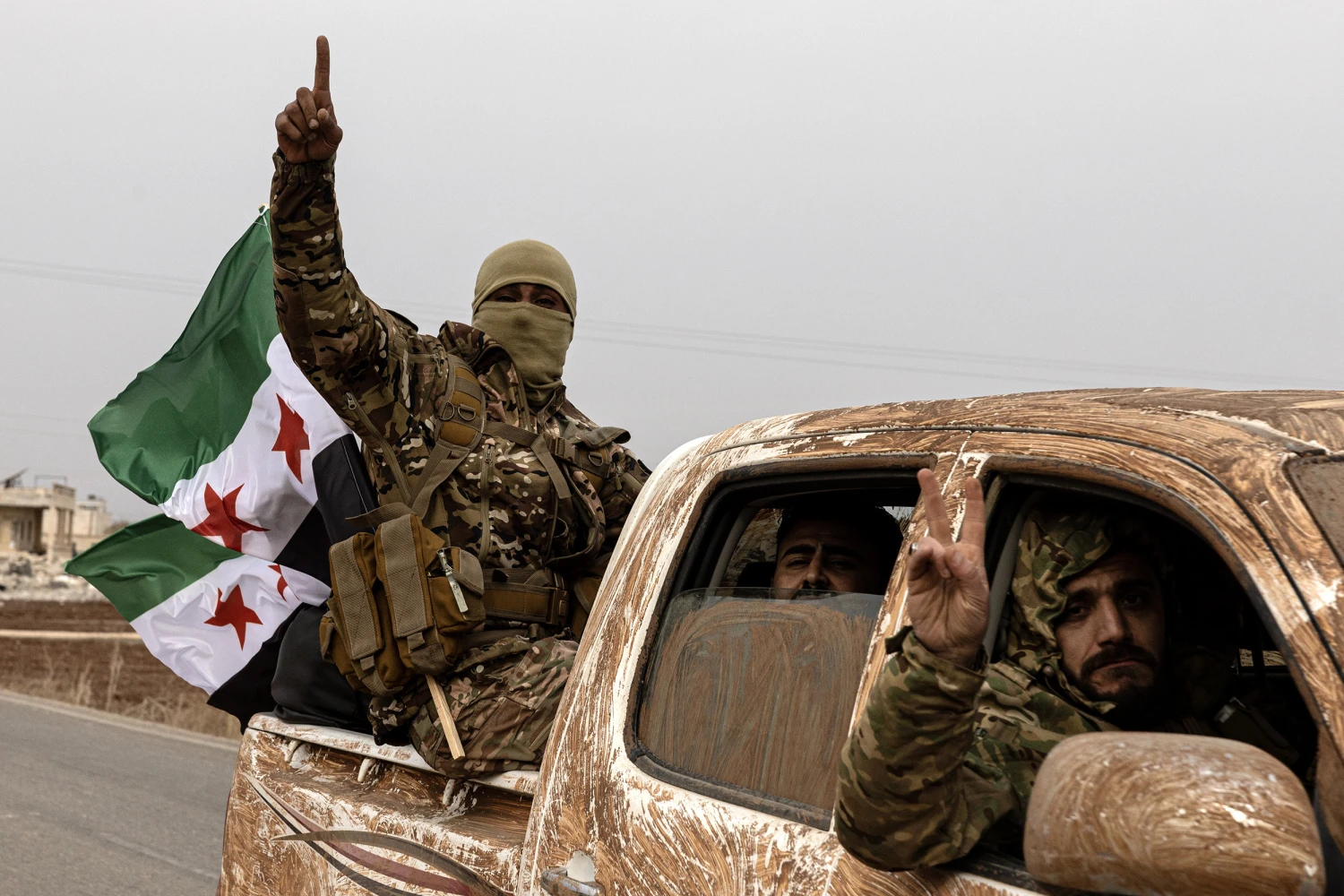Following the toppling of Bachar al-Assad and the entrance of opposition forces to all areas previously controlled by the regime, millions of Syrians, Lebanese and other people around the world who suffered at the hands of the regime rejoiced at the fall of their decade-long oppressor.
While many have delayed worrying about the uncertainty concerning Syria to rejoice for a while, they have now started concretely analyzing what the upcoming period means for the country.
At present, the opposition group Hayat Tahrir al-Sham (HTS), led by Ahmad al-Sharee’ (otherwise known as Abou Mohammad al-Joulani), has been at the forefront of the power transition. Al-Joulani, an ex-Al Qaeda and ex-ISIS member, emerged as a prominent figure over the past few weeks, and was invited to a sit-down interview with CNN to discuss the group’s motives.
Many individiuals, including Syrians, have become skeptical about the group’s motives after al-Joulani’s previous affiliations with Al-Qaeda and ISIS became known. Most are fearful of the return of ISIS to power in Syria, while others believe that now is a time for a national unity between Syrians to decide their collective future.
Form of Governance
As Syria prepares for the transitional phase, many oppositional groups have dissolved themselves to join the unified command room led by HTS. This was the case for many local groups formed in the south of Syria as well.
A few days after HTS began its campaign, al-Joulani announced that the group would dissolve itself and its members would take part in formal political institutions and structures. He announced that bureaucrats and public institutions should be left to function properly.
Earlier this week, Syrian fighters appointed Mohammed al-Bashir as the country’s caretaker Prime Minister to lead a transitional Syrian government until March 1, 2025. Al-Bashir previously headed the HTS de-facto government in Idlib province, where HTS had control for the last few years after more than a decade of fighting across Syria.
Many have voiced concerns regarding the form of government that the new forces will establish. As al-Joulani was previously a member of al-Qaeda and was a pillar in the formation of its Syria branch, many worry the new government would take an oppressive, fanatical shape.
Al-Joulani was quick to assure in his interview to CNN that Syria has long had different sects that “have coexisted in this region for hundreds of years, and no one has the right to eliminate them.”
He also emphasized that “Syria deserves a governing system that is institutional, not one where a single ruler makes arbitrary decisions”.
After taking control over major multi-sectarian cities such as Aleppo, Hama and Homs, HTS fighters repeatedly ensured local communities that minorities should feel safe, counter to the ideas that many have propagated.
A Carved-Up Country
While HTS and allied groups have taken over the larger portion of Syria, which was previously controlled by the Assad regime, there remains many areas in the country that are contested or invaded.
In the North, Turkish-backed groups such as the Syrian National Army have been clashing with Kurdish fighters as part of the Syrian Democratic Forces (SDF), as Türkiye seeks to push Kurdish fighters away from its borders.
In the South, Israel has been occupying the Syrian Golan Heights for decades under the Syrian regime. Now, after the toppling after the Assad regime, Israeli forces have invaded deeper into Syria and have conducted strikes across the country, effectively dismantling the Syrian military infrastructure.
Israel has also informed its forces to prepare to stay in this so-called “buffer zone” it established deep into Syria over the winter period.
United Nations Secretary General Antonio Guterres expressed concerns over the hundreds of Israeli airstrikes on several locations in Syria, and called for urgent de-escalation “on all fronts, throughout Syria.”
As matters stand, the Syrian population is set to brace a series of difficult challenges, the first being ensuring some sort of peace, stability and an end to the fighting, and the second being ensuring an inclusive recovery and rebuilding.
However, it is important to note that in periods of transition following the toppling of a decades-long regime, bouts of chaos are to be expected.


